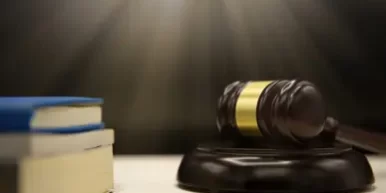Fly high trademark common to trade, interim injunction against air india vacated: delhi high court
The Delhi High Court vide judgement dated 28 th October 2022 vacated the ex-parte ad interim injunction passed against the Defendent with respect to the trademark ‘FLY HIGH’.
1.FACTS OF THE CASE
The plaintiff claimed to have coined and adopted the trademarks ‘FLY HIGH’ since the year 2004 in lieu of training in hospitality, aviation , travels, management and customer service . The plaintiff also had obtained various registrations of the said trademarks.
the plaintiff had approached te court after coming across an advertisement of the Defendant who operate their airline services under the trademark VISTARA using the trademarks ‘FLY HIGHER’ on various online platform and social media website.The Plaintiff claimed that since the Defendant also uses the trademark ‘FLY HIGH’ and ‘FLY HIGHER’ on its website, and the services of both the parties pertain the same sector, it might lead to confusion amongst the members of the public. Accordingly, the Court had granted an ex parte ad interim injunction on 21.01.2022 restraining the Defendant from using any trademark identical or deceptively similar to the Plaintiff’s trademark ‘FLY HIGH’.
Subsequently, the Defendant filed an application for the vacation of the ex parte ad interim injunction on the ground that the phrase ‘FLY HIGHER’ was not used as a trademark, but rather as a descriptor solely for marketing and promotional purposes. It also submitted that phrase ‘FLY HIGH’ is a dictionary term which is laudatory in nature, and the phrase is commonly used with respect to various airlines as a part of their social media posts and advertisement campaigns.. The Defendant also claimed that they do not offer any services in the education or training sector, and that there cannot be any association or confusion as the parties operate in entirely different fields on completely different scale.
2.ANALYSIS BY THE COURT
The Court preliminarily examined whether the Defendant was using the phrase ‘FLY HIGHER’ as a trademark, and observed that it was being used in conjunction with the well- known trade mark ‘VISTARA’. The Court took the assistance of various judgments to note that if the Defendant is able to demonstrate that the use of the alleged infringing trademark is not as a source identifier but merely descriptive in nature, it can escape the rigours of Section 29 of the Trade Marks Act, 1999.Accordingly, the Defendant took a prima facie view that the phrase was used in conjunction with the well-known trade mark ‘VISTARA’ with the sole purpose of advertising and promoting its airlines and does not serve as a source identifier and is not used as a trademark.
The Court also perused the various documents on record placed on record by the Defendant to observe that the phrase ‘FLY HIGHER’ was adopted by the Defendant in the year 2018 as an extension of the tagline FLY THE NEW FEELING. It was meant to inspire people to fly with VISTARA, and was never intended to be used in a trademark sense. The Court also took into consideration that various airlines such as Air India, Emirates, Spice Jet, Lufthansa, etc. were also using the expression FLY HIGH or a variation thereof as a part of their social media posts, advertising campaigns, etc.
Thus, the Court was prima facie of the view that the term ‘FLY HIGH’ is common to the aviation sector. The Court also noted that the Plaintiff had concealed to inform the Court that registration for the trademark FLY HIGH in Class 41 was granted with the condition that no exclusive right would be granted to use the word ‘HIGH’.Therefore, the Court concluded that since the phrase FLY HIGHER was not used as a trademark by the Defendant, the ground for infringement of the trademark cannot be raised.
The Court further noted that even if it is assumed that the phrase ‘FLY HIGHER’ is used as a trademark by the Defendant, the Plaintiff’s right in its mark FLY HIGH cannot be infringed as the Defendant is not using the trademark in Classes 16 and 41 in which the Plaintiff claims to hold registration, but rather would use in Class 12 and 39 pertaining to the aviation industry.Thus, the Plaintiff and Defendant operate in an entirely different field and industry. Thus, the Court noted that the Defendant was unable to satisfy the ingredients of Section 29(1) and (2) of the Trade Marks Act, 1999.
3.DECISION OF THE COURT
The Court, therefore, concluded that the manner in which the Defendant is using the phrase FLY HIGHER does not appear to be with an intent to deceive,misrepresent and confuse members of the public. Accordingly, the ex parte ad interim injunction dated 21.01.2022 was thereby vacated, and the application under Order 39 Rules 1 and 2 of Code of Civil Procedure, 1908 was dismissed.








